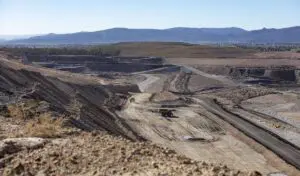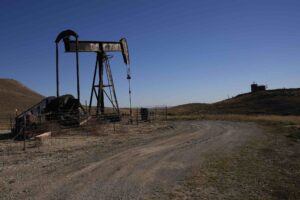The Reserve Bank of Australia has reiterated calls for companies to incorporate climate change into their business plans, saying that climate change poses a material long term risks to the global economy and to financial markets.
Deputy RBA governor Guy Debelle made the remarks in a speech to the Annual Risk Australia Conference in Sydney that it was crucial that risk managers incorporated climate change into their business risk assessments, saying that the issue presented just as much risk as any other economic challenges, such as trade concerns or changing consumption patterns.
The fresh calls from the RBA to recognise the financial risk posed by climate change mirrors similar calls from other Australian financial regulators, including ASIC and APRA.
“Climate is a challenging risk to assess but an increasingly necessary one. Businesses need to take account of both the physical risks and the transition risks,” Debelle said.
“Physical risk is about the direct impact of climate on your business and the assets that it holds. What will be the effect of climate change on the price of an asset my company owns, particularly if it is a long-lived asset such as, for example, a mortgage?”
“Transition risk is about the potential effects to businesses as the country and the economy adjusts to the changes in the climate. This includes the adjustment to policy responses required to meet the Paris objectives.”
Speaking to an audience of risk managers, Debelle highlighted the role they have to play in helping to manage the climate change related risks to the financial sector.
While the government refuses to consider any form of pricing of greenhouse gas emissions, which would make life a lot easier for financial risk managers, the potential impact of climate change still needs to be factored into the valuation of major assets and the potential loss of value caused by impacts such as flooding, drought and sea-level inundation.
“As risk managers, you can bring your skills at calculating the expected future value of financial assets across a number of potential scenarios. In that sense, climate risk is not that different from other risks, though the challenge of translating uncertain future paths for the climate into paths for the economy and the prices of financial assets is harder than some of the other risks that you generally deal with. But it is a challenge that needs to be confronted,” Debelle added.
Debelle has been outspoken on the need to treat climate change as an emerging financial risk, placing both the risks and opportunities created by climate change at the centre of a speech given to a forum hosted by the Centre for Policy Development back in March.
That speech elicited a strong reaction from coal baron Trevor St Baker, who has made his fortune through a sweetheart deal with the NSW government to acquire the Vales Point coal-fired power station, and who labelled the speech “highly inappropriate”.
Yet, the RBA deputy governor’s comments reflect the recommendations of the international Taskforce of Climate related Financial Disclosures, and have been widely taken heed of by the financial services sector.
Debelle’s latest speech follows the recent changes to the guidance issued by ASIC to companies on their disclosure obligations, that stressed the need for companies to assess and disclose the risk of climate change in a company prospectus and ongoing operational reporting.
The response by the financial regulators is partially driven by growing recognition that company directors may face legal liability for failing to consider, and mitigate the risk of climate change on company operations, and the potential flow-on impacts for investors.
“Directors should be able to demonstrate that they have met their legal obligations in considering, managing and disclosing all material risks that may affect their companies. This includes any risks arising from climate change, be they physical or transitional risks,” ASIC said.








